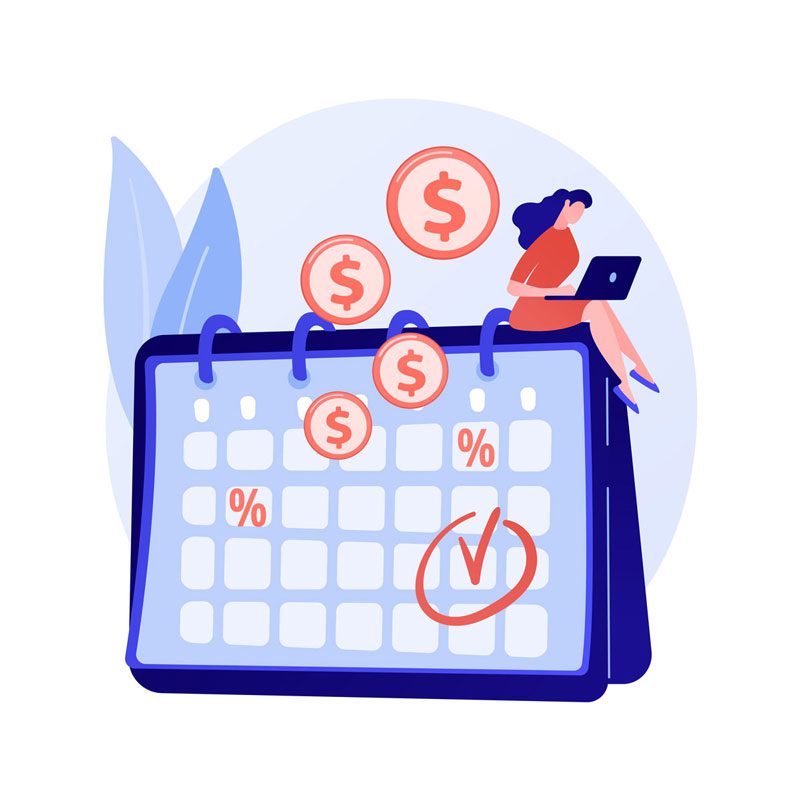When you are running a small business, your bookkeeping often tends to falls behind due to lack of time, staff or a small budget. Undoubtedly, maintaining your company’s bookkeeping updated is not an easy task, unless you have an expert doing it for you. In case you don’t, you are probably already panicking!
Have your accounts gone haywire and you are sure that it’s just too late to do catch-up bookkeeping? Calm down – It isn’t! In fact, if you are adamant enough, catching up with your bookkeeping will only take a couple of days.
Want to learn how? Keep reading to find out some simple ways to catch with your bookkeeping! Remember, the earlier you get done with the task, the less overwhelming it will be when a tax return deadline approaches.
Gather Receipts
It is vital to determine how far behind with bookkeeping you are before taking any action to bring it back on track. How to do this? By gathering and organizing all your receipts and bills. This can be extremely tedious and time consuming, but it is crucial nonetheless. Besides, it is best to get with the worst part of the process quickly, right?
Note that it is super important to keep receipts that are above $75 as per IRS requirements, so don’t fret if you have misplaced a bill that amounted to $4. Once you have all receipts and invoices in place, go digital by clicking their picture and uploading them on Google Drive for record. You can also use an online accounting tool for this.
Customer Invoices
Check all customer records to confirm that you have received all customer bills for the tax year. There are mainly two accounting procedures that influence how and when this data is recorded:
- If your company uses a cash basis accounting method, the customer will receive an invoice after they have made a payment.
- If your company uses accrual accounting, the data will be stored in your storage as soon as a purchase is made, even before receiving payment.
Organize these together to see where the backlog lies, and start updating it immediately.
Debt Collections
Examine your clients’ accounts thoroughly to ensure that there are no bad debts. Furthermore, in order to exclude the expense of bad debt from your tax return, you must present evidence to IRS. This will prove how you took reasonable measures to collect the amount. You can also use the particular charge-off method or the nonaccrual experience method to recover bad debts.
Vendor accounts
Check your vendor accounts to confirm that you’ve paid them everything in full. Make sure that you have data of every vendor. In case you don’t have a copy, contact the vendor immediately to request for it.
This includes all bills of ongoing business activities throughout the closing period of your company. Furthermore, it is important to ensure that these expenses are shown accurately on your year-end financial report.
Update and Reconcile Bookkeeping
Now that you have collected everything together, know that it’s finally time to update your bookkeeping software and reconcile your accounts smoothly. For this, every activity in your account should be classified and put into your accounting software.
Although this may appear as an unnecessary task of copying your financial information within a bookkeeping software, reconciliations guarantee that your records are correct. Besides, the effort also facilitates in verifying that your finances are correctly balanced. It can be pricey having a bookkeeper or accountant step back and amend your books if they are not.
Separate Personal and Business Expenses
If you want to catch up with your bookkeeping without facing complications, it is advisable to maintain your personal and business expenses apart. Combining personal and business expenditures in the same account may result in a breach of the corporate veil, and face severe tax implications as well. Better safe than sorry!
Make Digital Records
There are several benefits to going paperless in your company if you haven’t previously. Create digital recordings of receipts and essential papers as you manage your paperwork. Here are a handful of our favorite paperless tools to help you get started:
- Shoeboxed
- File This
- ScanSnap Scanner by Evernote
Employ a Bookkeeper
Do you feel that you just don’t have time to catch up with you bookkeeping on your own? No problem, hire someone else to take the stress off your mind! You can easily outsource the task of preparing the books to an accountant. Moreover, doing so will almost certainly provide you with accurate figures that you had been dreading to sort out since so long. What a relief, isn’t it? Employing someone else’s experience and time to catch up on your bookkeeping while you set your heart on the more important tasks of scaling up your business sounds like a win-win!
At ALP Peak, we strive to provide you with an excellent bookkeeping service. With our team of experts, you can skip all the guesswork and manage your records smartly. Whether it is importing bank statements, preparing monthly financial statements, or categorizing transactions, ALP has you covered!

